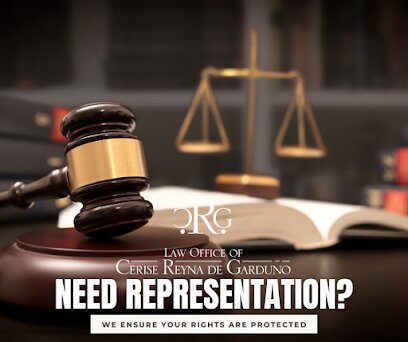Best Child Support Lawyers in United States
Share your needs with us, get contacted by law firms.
Free. Takes 2 min.
Free Guide to Hiring a Family Lawyer
Or refine your search by selecting a city:
List of the best lawyers in United States
United States Child Support Legal Questions answered by Lawyers
Browse our 1 legal question about Child Support in United States and read the lawyer answers, or ask your own questions for free.
- Child support laws
- If my annual salary is 4 million pesos my wife's salary is 240,000 pesos, and she lives in Rizal, how much will I pay in child support for one child?
-
Lawyer answer by Rana Fazal Muhammad Law Associates
it is the discretionary power of the court to determine the amount for the support of your child, it is not fixed amount
Read full answer
About Child Support Law in United States
Child support in the United States is a legal obligation of a non-custodial parent to contribute financially to the raising of their child. The primary goal of child support is to ensure that the child's essential needs, such as food, shelter, education, and healthcare, are met adequately. Child support laws are implemented at the state level, meaning there may be differences in how laws are applied from one state to another. Despite these variations, federal guidelines ensure that the basics of child support enforcement, modification, and collection are consistent throughout the country.
Why You May Need a Lawyer
Seeking legal advice for child support issues can be crucial in various situations. Common scenarios where legal expertise may be necessary include disputes over the amount of support required, enforcement or modification of existing child support orders, and navigating complex interstate child support cases. Legal assistance might also be beneficial when an obligated parent experiences changes in income or employment status that affect their ability to pay. Furthermore, when child support involves high-conflict custody cases, having a lawyer can ensure that the child’s best interests are prioritized.
Local Laws Overview
In the United States, child support is governed by both federal guidelines and state-specific regulations. Key elements include the calculation of payments based on parental income and the number of children, the enforcement of payment obligations through wage garnishment, and the possible repercussions for non-payment, including license suspension or even imprisonment. States utilize formulas to calculate child support, often considering factors such as custodial arrangements, actual income, and medical expenses. Understanding the specifics of your state’s guidelines and regulations can be crucial for accurately assessing child support responsibilities and rights.
Frequently Asked Questions
How is child support calculated?
Child support is typically calculated based on a formula that considers the non-custodial parent's income, the custodial parent's income, and the needs of the child. Each state has its own guidelines and calculations.
What happens if a parent doesn't pay child support?
If a parent fails to pay child support, they may face legal consequences. This can include wage garnishment, seizure of tax refunds, suspension of licenses, and possible jail time.
Can child support be modified?
Yes, child support can be modified if there is a significant change in circumstances such as a change in income, employment status, or the needs of the child.
How long do child support payments last?
Child support payments typically continue until the child turns 18, although they may continue if the child is still in high school or has special needs that require ongoing support.
Does child support cover college expenses?
In some states, child support orders may extend to cover college expenses, but this is not a universal requirement across all states.
What role does paternity play in child support?
Establishing paternity is essential in child support cases because it legally identifies the child’s parents. Without confirmed paternity, child support cannot be enforced.
Can child support orders be enforced if a parent moves to another state?
Yes, child support orders can be enforced across state lines thanks to the Uniform Interstate Family Support Act (UIFSA), which ensures cooperation between states.
Does shared custody affect child support?
Yes, shared custody arrangements can influence the calculation of child support, often resulting in decreased payments from one parent to the other.
What is the impact of remarriage on child support?
Generally, remarriage itself does not impact child support. However, if the remarriage results in a significant change in financial circumstances, it could lead to a modification of the support order.
Can child support be paid directly to the child?
Typically, child support is paid to the custodial parent or guardian and not directly to the child, unless specific arrangements are made with the court's approval.
Additional Resources
Individuals seeking more information on child support can consult several resources, including the Administration for Children and Families (ACF), state child support agencies, and legal aid organizations. The Federal Office of Child Support Enforcement (OCSE) also provides various supports and guides.
Next Steps
If you require legal assistance with child support, consider consulting a family law attorney who specializes in child support cases. It's important to choose a lawyer who is knowledgeable about the specific laws and procedures in your state. You can start by seeking referrals from trusted friends or family, checking with your local bar association, or using online legal services to connect with qualified attorneys. Ensure any attorney you engage with is well-versed in family law and comes highly recommended.
Lawzana helps you find the best lawyers and law firms in United States through a curated and pre-screened list of qualified legal professionals. Our platform offers rankings and detailed profiles of attorneys and law firms, allowing you to compare based on practice areas, including Child Support, experience, and client feedback.
Each profile includes a description of the firm's areas of practice, client reviews, team members and partners, year of establishment, spoken languages, office locations, contact information, social media presence, and any published articles or resources. Most firms on our platform speak English and are experienced in both local and international legal matters.
Get a quote from top-rated law firms in United States — quickly, securely, and without unnecessary hassle.
Disclaimer:
The information provided on this page is for general informational purposes only and does not constitute legal advice. While we strive to ensure the accuracy and relevance of the content, legal information may change over time, and interpretations of the law can vary. You should always consult with a qualified legal professional for advice specific to your situation.
We disclaim all liability for actions taken or not taken based on the content of this page. If you believe any information is incorrect or outdated, please contact us, and we will review and update it where appropriate.
Browse child support law firms by state in United States
Refine your search by selecting a state.

















